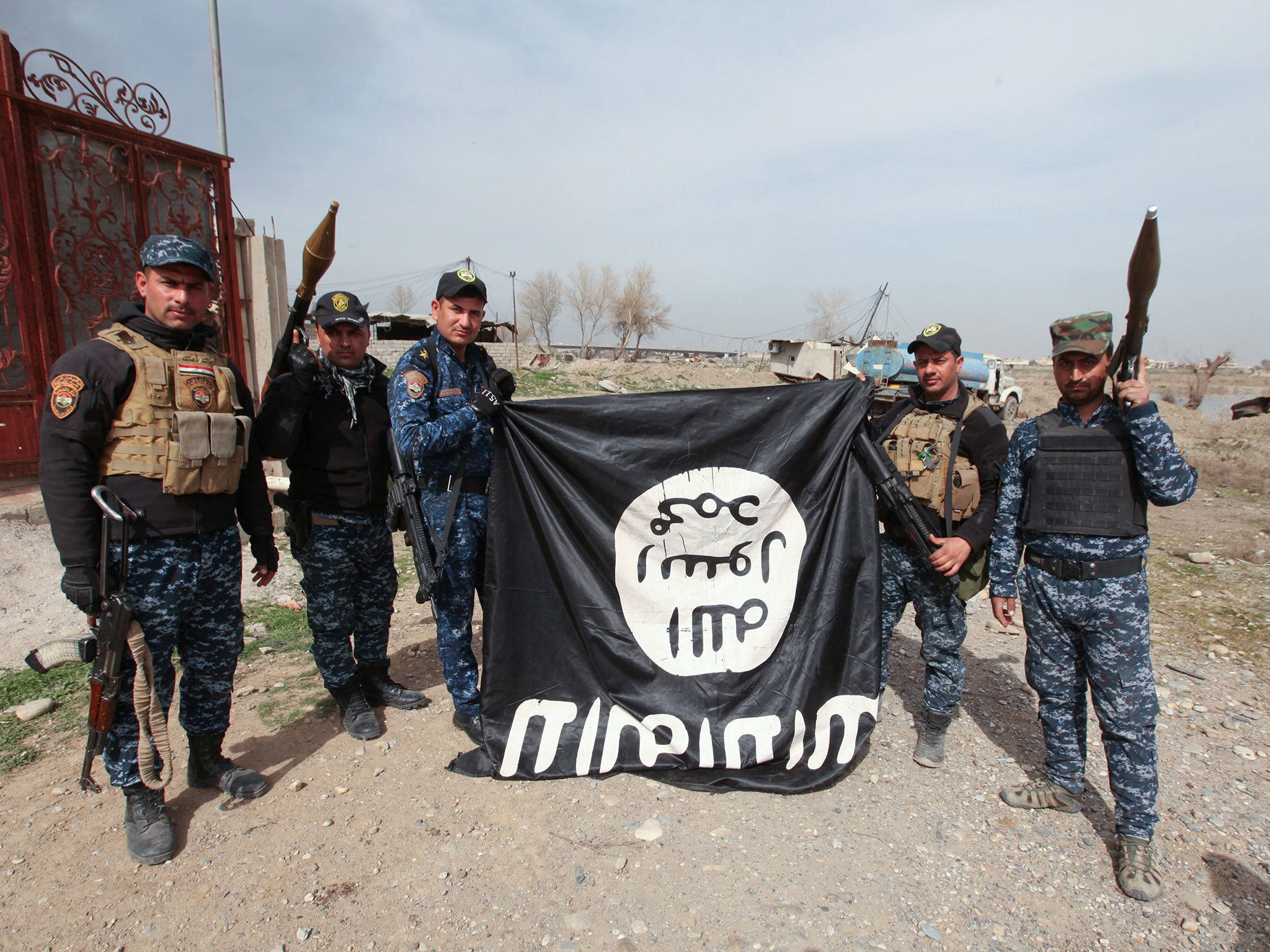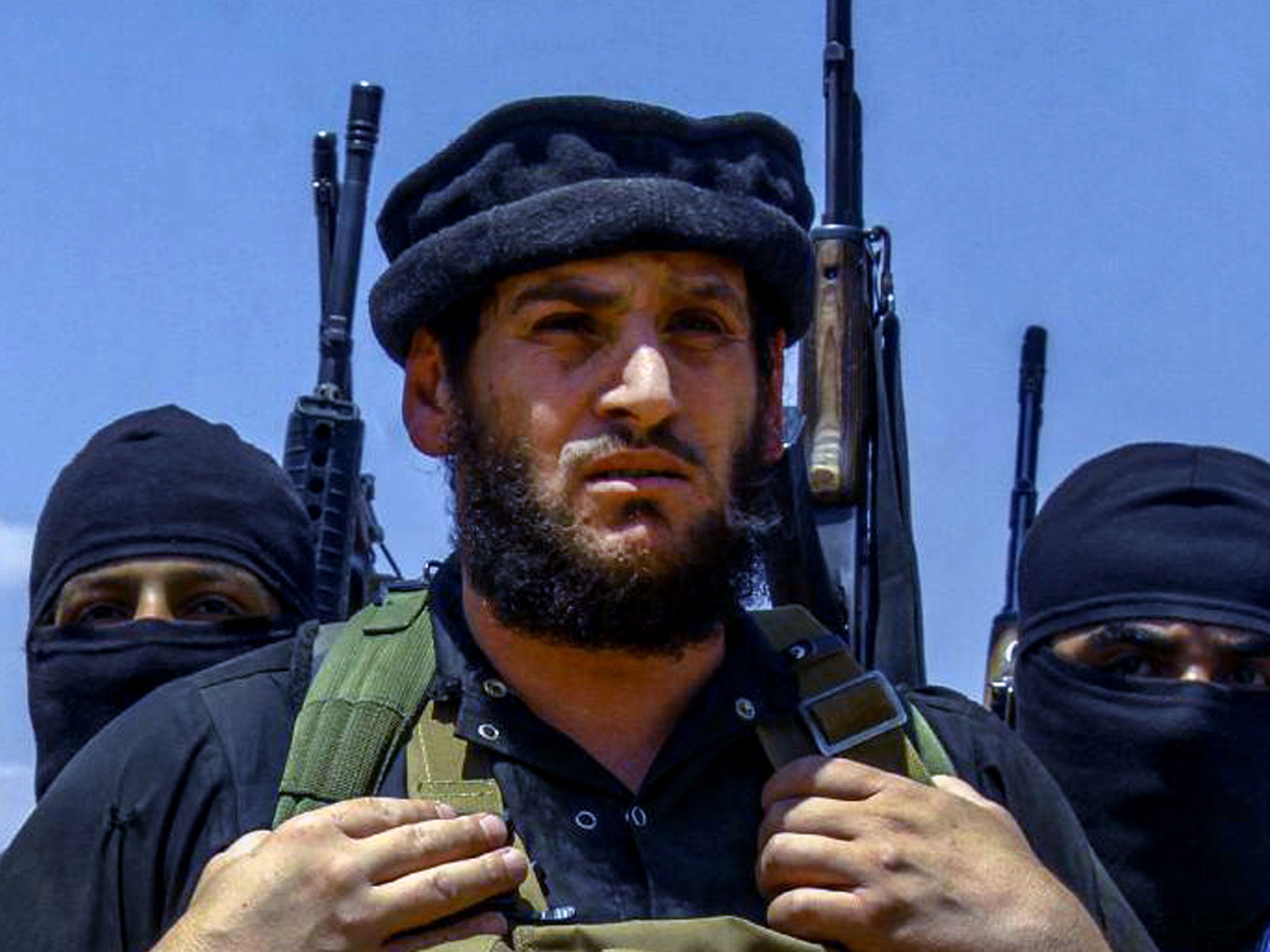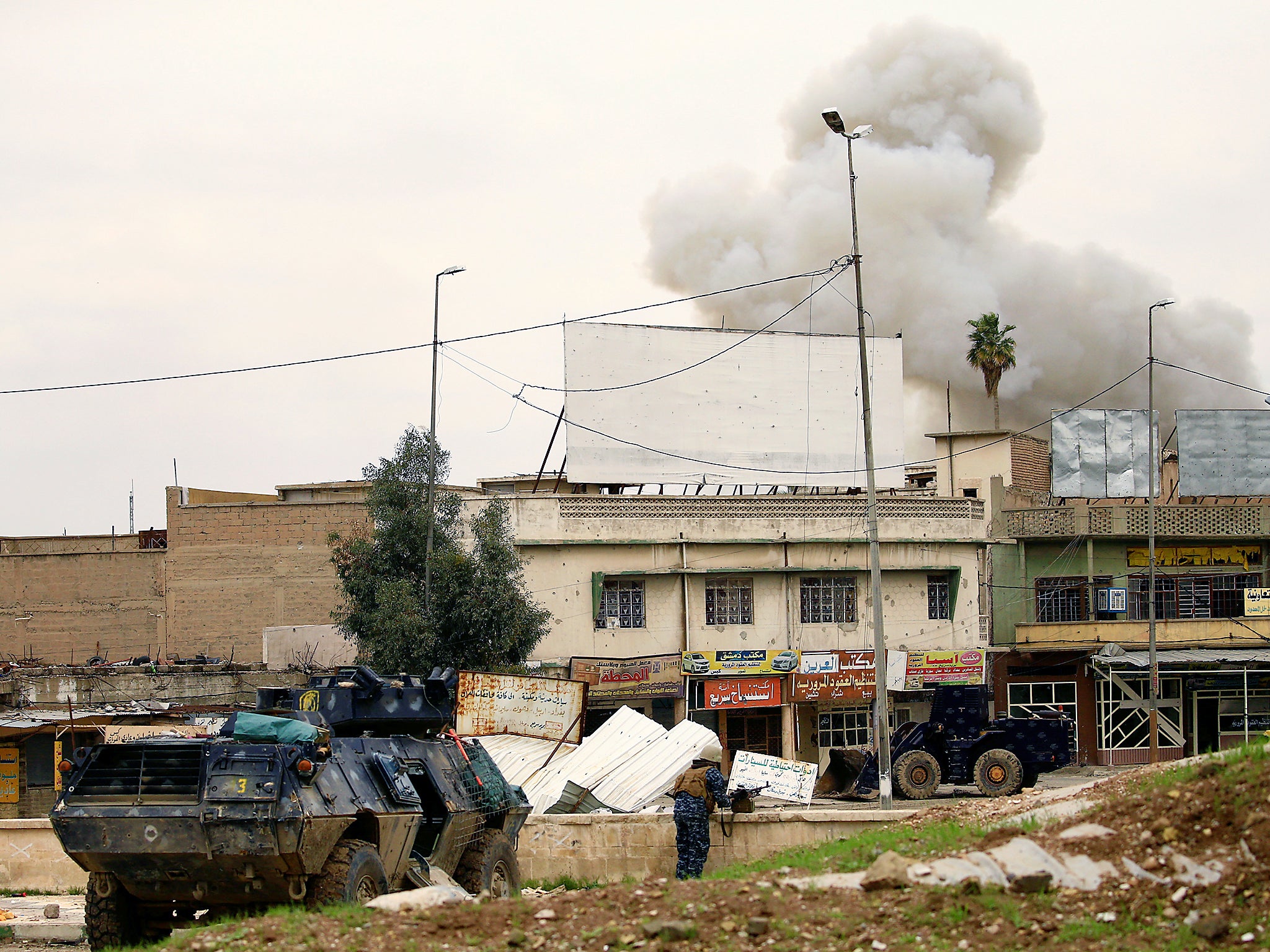Isis claiming responsibility for London attack to mask huge losses in Iraq and Syria, say terror experts
Group attempting to incite knife and car attacks as capacity damaged by territory losses and security crackdowns

Your support helps us to tell the story
From reproductive rights to climate change to Big Tech, The Independent is on the ground when the story is developing. Whether it's investigating the financials of Elon Musk's pro-Trump PAC or producing our latest documentary, 'The A Word', which shines a light on the American women fighting for reproductive rights, we know how important it is to parse out the facts from the messaging.
At such a critical moment in US history, we need reporters on the ground. Your donation allows us to keep sending journalists to speak to both sides of the story.
The Independent is trusted by Americans across the entire political spectrum. And unlike many other quality news outlets, we choose not to lock Americans out of our reporting and analysis with paywalls. We believe quality journalism should be available to everyone, paid for by those who can afford it.
Your support makes all the difference.Isis is resorting to claiming responsibility for atrocities like the Westminster attack in efforts to disguise its huge losses in Syria and Iraq, analysts have said.
Khalid Masood, a 52-year-old from Kent, was hailed as a “soldier of the Islamic State” in a propaganda statement released a day after he murdered three people and injured 40 more.
Brief remarks echoing those issued after previous attacks across Europe claimed the atrocity was carried out in “response to calls to target citizens of coalition countries”.
Experts said the claim’s lack of biographical information and specifics suggested Isis did not directly commission or facilitate the attack outside the Houses of Parliament.
Jean-Marc Rickli, a research fellow at King’s College London and the Geneva Centre for Security Policy, said the group’s recruiters could have been in contact with Masood online.
“When Isis has not directly ordered an attack, it does some kind of vetting process and background check to see if the person has been in contact with Isis members in one way or another,” he told The Independent.
“The concept of ‘lone wolf’ is difficult because in most cases there is contact with recruiters, or people involved in the organisations can be traced.
“Pure lone wolf attacks are very rare, they are more the exception than the norm.”
Dr Rickli said that while Isis seeks to boost its image, it also exercises caution in claiming attacks as it has an “interest in being credible”.
Renad Mansour, an academy fellow in the Middle East and North Africa Programme at Chatham House, also said the idea of “lone wolf” attacks was problematic.
He said that while many assailants act on their “own intuition” and with no direction, they are frequently part of wider online or offline extremist networks incorporating family members or friends.
“Isis is far from being a centralised organisation,” Dr Mansour told The Independent. “Sometimes you have people in these networks going to Syria and then coming back but it’s hard to draw a direct link.”
Investigators are probing Masood’s possible links to a wider extremist network, saying that although there was no “prior intelligence” of his intentions he had been the subject of a terror investigation by MI5.
It did not result in prosecution but Masood was known to police for a range of convictions dating back to 1983 for violent crime including assaults, grievous bodily harm, possession of offensive weapons and public order offences.
Research has shown that more than half of European Isis fighters have a criminal past, with recruiters deliberately targeting violent criminals and gang members looking for redemption and a licence to kill in the name of jihad.
The terrorist group itself dislikes the term “lone wolf”, instructing its followers instead to use the term “just terror” attacks for the “justified” murders of so-called disbelievers, whether civilians or members of the security forces.
Before being killed by an air strike in August, Isis’ chief spokesman Abu Muhammad al-Adnani issued a series of calls for supporters unable to join its ranks in Syria or Iraq to wage “jihad” in their home countries.
His last announcement, released in May, called for atrocities in the Muslim holy month of Ramadan and was linked to the Orlando shooting, Nice attack and Magnanville stabbing.

Since Adnani’s death, Isis propaganda has continued inciting terror attacks in Europe, the US, Australia and other countries supporting military operations against its fighters.
An issue of its Rumiyah magazine issued in October contained lengthy instructions on how to carry out knife attacks, including what weapon to use, deadly places to strike a blow and ways to overcome “discomfort” at the thought of such slaughter.
The next issue of the propaganda magazine, released in multiple languages in November, advised jihadis to launch vehicle attacks in an article citing the Nice lorry attack that killed 86 people as a “superb demonstration”.
“Having a secondary weapon, such as a gun or a knife, is also a great way to combine a vehicle attack with other forms,” it read.
Masood’s attack appeared to match Isis’ instructions to target crowded outdoor attractions, seeing him plough a car into pedestrians on Westminster Bridge – where two people were killed – before crashing it into railings outside Parliament.
He emerged with a knife and attempted to run inside the nearest entrance, fatally stabbing PC Keith Palmer before being shot dead.
Dr Mansour said that the Houses of Parliament were a “hugely symbolic” target for the group, seeing horrific scenes beamed around the world with the iconic backdrop of Big Ben.
“Isis supporters are trying to show their reach is wider than many would have assumed,” he added.

“As Isis loses more and more territory in Iraq and Syria, it needs to find another narrative to show its success.”
Dr Rickli predicted the group would continue attempts to incite unpredictable and low-tech attacks around the world to maintain momentum and “hit the headlines”.
“Because Isis is being challenged in Syria and Iraq they have to move into an insurgency mode,” he added, noting that large-scale bomb and gun attacks of the kind seen in Paris and Brussels had been made far more difficult by security crackdowns across Europe.
There are fears commanders could attempt to exploit returning foreign fighters to carry out or organise further attacks, with at least 400 jihadis believed to have travelled back to the UK from Isis territory.
Members of the 68-nation US-led coalition met in Washington on Wednesday, hailing success in halving Isis’ fighting force since its formation in 2014 and driving militants from swathes of territory in their self-declared caliphate.
Jihadis are fighting for survival in western parts of their former Iraqi stronghold of Mosul, while international forces surround Isis’ de-facto Syrian capital of Raqqa in preparation for an all-out assault.
The US-led coalition has conducted more than 19,000 air strikes on Isis targets, with officials saying the bombing had killed tens of thousands of fighters and about 180 leaders, as well as disabling oil fields, destroying ammunition, factories, weapons facilities, command posts and cash stores.
“We are united in our determination to eliminate this global threat and overcome its false, destructive narrative,” members said at their US conference, vowing to work relentlessly towards Isis’ “final defeat”.
Join our commenting forum
Join thought-provoking conversations, follow other Independent readers and see their replies
Comments